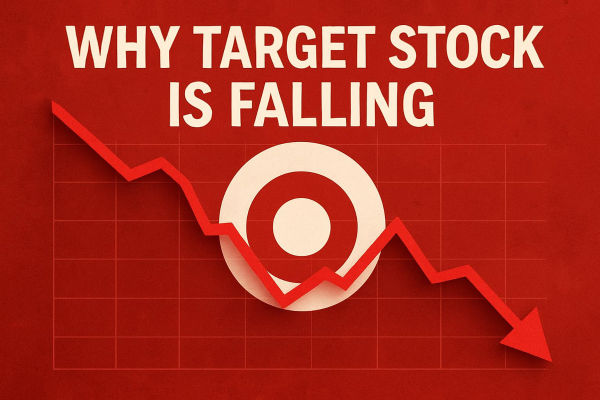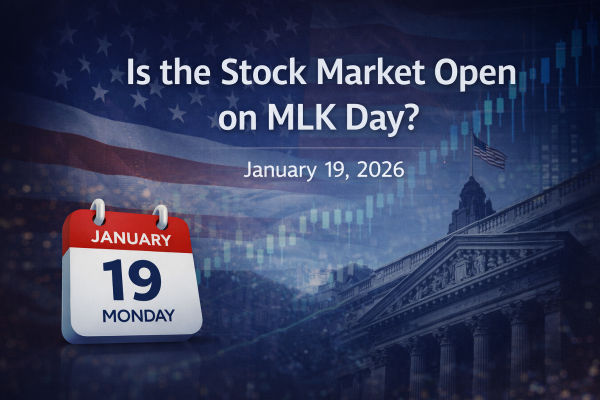If you've ever wondered whether you can buy Aldi stock, the short answer is no. Aldi is not publicly traded, meaning there's no Aldi stock ticker, IPO, or shares available for investors today.
In contrast, family foundations oversee two privately owned segments of Aldi: Aldi Nord and Aldi Süd, which are not traded on any stock market.
In the U.S., Aldi Süd operates ALDI stores, while Aldi Nord owns Trader Joe's. Despite the shared name, they are separate entities, and neither offers public equity.
Why There's No "Aldi Stock" to Buy

Aldi's structure dates back to a 1960 split in the Albrecht family's discount grocery empire. The brothers divided operations into two groups:
Aldi Nord (headquartered in Essen, Germany)
Aldi Süd (headquartered in Mülheim, Germany)
Both groups are controlled by German family foundations (Doppelstiftungsmodell), which prioritise long-term growth, autonomy, and privacy.
Remaining private gives Aldi significant advantages:
Keeps costs low without shareholder pressure
Rapid expansion without quarterly reporting burdens
Complete control over brand strategy and store growth
For this reason, there is no Aldi ticker, no U.S. ADR, and no IPO on the calendar. While "Aldi IPO rumours" occasionally surface in financial blogs, Aldi's official stance has been consistent: it remains a family-owned, privately held retailer.
Aldi vs. Trader Joe's: Clearing Up a Persistent Misconception
One of the most common misconceptions is that Aldi and Trader Joe's are the same company. The truth is more nuanced:
Yes: Trader Joe's has been owned by Aldi Nord since 1979.
No: Trader Joe's is not part of Aldi Süd (which runs U.S. ALDI stores).
To simplify:
If you shop at ALDI in the U.S., Aldi Süd owns it
If you shop at Trader Joe's, Aldi Nord owns it
Both brands are privately held and operate independently.
How Aldi Is Organised (and Where Trader Joe's Fits In)
1) Aldi Süd
Runs Aldi in Germany (south) and abroad, including the United States, UK & Ireland, Australia, China, Switzerland, Austria (as Hofer), Italy, Slovenia, and Hungary. In the U.S., Aldi Süd operates ALDI stores.
2) Aldi Nord
It operates in northern Germany and parts of Western and Southern Europe and owns Trader Joe's in the United States.
Trader Joe's has confirmed that it has no business or ownership relationship with Aldi Süd, which operates Aldi in the U.S. Instead, it falls under the Aldi Nord umbrella.
For investors, the key takeaway is straightforward: Aldi Süd and Aldi Nord are both privately held, and Trader Joe's is owned by Aldi Nord, meaning there is no direct equity investment available in any of these companies.
What an Aldi IPO Would Look Like (Hypothetically)

Aldi has not indicated plans to go public. But it's interesting to consider what an IPO might entail:
1) Dual-Group Complexity
With Aldi split between Nord and Süd, listing would require ring-fenced corporate structures and carefully defined brand and market rights.
2) Capital Allocation Philosophy
As a low-margin, scale-driven retailer, Aldi's competitive advantage is relentless cost discipline (limited assortment, smaller boxes, rapid turns).
Public markets may require greater transparency and visibility in growth, possibly undermining the very simplicity that supports Aldi's model.
3) Use of Proceeds
If ever pursued, proceeds could support international expansion, distribution capacity, and technology (automation, analytics, e-commerce partnerships).
So far, the family-foundation model has offered strategic freedom, and Aldi has shown it doesn't need public equity to grow quickly.
Can You Invest in Aldi Indirectly?
Since Aldi remains privately owned, investors can't buy shares directly. But there are indirect ways to gain exposure:
1) Competitors
Walmart (WMT), Kroger (KR), and Tesco (TSCO.L) are publicly listed supermarket leaders that rival Aldi.
2) Suppliers
Many consumer goods companies (like Procter & Gamble, Nestlé, or Unilever) supply Aldi stores and are listed on global exchanges.
This way, investors can continue to engage in the grocery industry's expansion, even if Aldi is not publicly traded.
Frequently Asked Questions
1. Is Aldi Publicly Traded on Any Stock Exchange?
No, Aldi is a privately held company and is not listed on any stock exchange. Investors cannot directly buy Aldi shares.
2. Can Investors Buy Stock in Aldi Indirectly?
Yes, investors can gain exposure to Aldi indirectly by investing in companies that supply Aldi or in competitors such as Walmart, Kroger, or Tesco, which are publicly traded.
3. Will Aldi Ever Go Public in the Future?
There has been no official statement about an IPO. While speculation occasionally surfaces, Aldi's private ownership model has been effective for many years, making an IPO appear improbable shortly.
Conclusion
For investors wondering, "Can I buy Aldi stock?", the answer remains no. Neither Aldi nor Trader Joe's is publicly traded, and there have been no announcements regarding an initial public offering (IPO).
For investors seeking exposure to Aldi's discount grocery model, they can consider publicly traded competitors and suppliers. As long as Aldi maintains its unique family-owned structure, it continues to experience growth without relying on Wall Street.
Disclaimer: This material is for general information purposes only and is not intended as (and should not be considered to be) financial, investment or other advice on which reliance should be placed. No opinion given in the material constitutes a recommendation by EBC or the author that any particular investment, security, transaction or investment strategy is suitable for any specific person.
